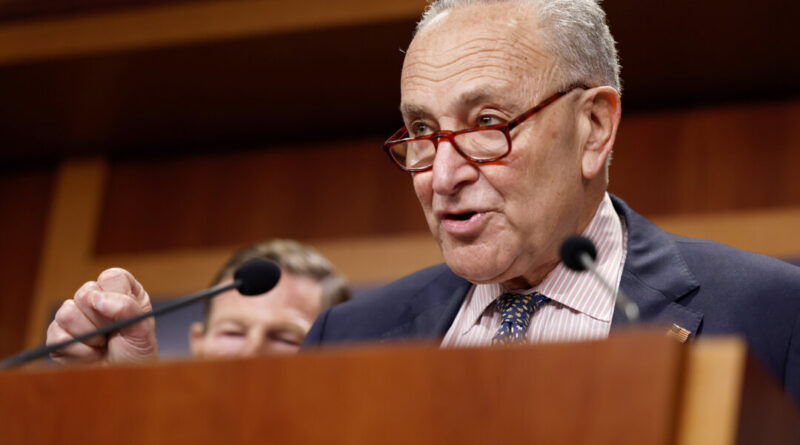Schumer: Senate Orientation for McCormick Will Be Deferred Until Race Outcome Is Decided
Even though multiple media outlets have declared McCormick as the winner, Senator Schumer emphasized that the 100,000 remaining ballots could still impact the outcome of the race.
Dave McCormick is currently not allowed to participate in the orientation for new U.S. senators despite several news outlets confirming his victory in the Pennsylvania Senate race, as stated by the top Democrat in the Senate.
“With over 100,000 ballots left to be counted in Pennsylvania, the race remains undecided,” a spokesperson for Senate Majority Leader Chuck Schumer (D-N.Y.) informed news sources on Nov. 10.
“In accordance with tradition, we will extend an invitation to the winner once all the votes have been tallied.”
McCormick has expressed his gratitude for being chosen to represent Pennsylvania in the Senate. He has not made any statements regarding his exclusion from the Senate orientation.
Leading Republicans in the Senate have criticized Schumer’s actions.
“Pennsylvania’s voters have spoken. We look forward to having Dave’s powerful voice in the Senate Republican Conference.”
As of Monday, McCormick has received 3.36 million votes versus Casey’s 3.33 million. The margin is currently 0.6 percent. If it narrows to 0.5 percent or less, an automatic recount will be triggered.
Casey, aged 64, has been representing Pennsylvania in the U.S. Senate since 2007. McCormick, aged 59, a military veteran and former Bridgewater Associates executive, entered the 2024 race after losing in the Republican primary for Pennsylvania’s other Senate seat in 2022.
According to Schumer’s office, Rep. Ruben Gallego (D-Ariz.) has also not been invited to the orientation. Gallego, aged 44, has served Arizona’s Third Congressional District since 2015, and as of Monday, he leads former television broadcaster Kari Lake, a Republican, by 2.2 percent.
The newly elected senators who have been acknowledged by both parties include Angela Alsobrooks (D-Md.), Tim Sheehy (R-Mont.), and Bernie Moreno (R-Ohio).
It is projected that Republicans will hold at least 53 seats in the Senate in the upcoming Congress after spending two years in the minority.




